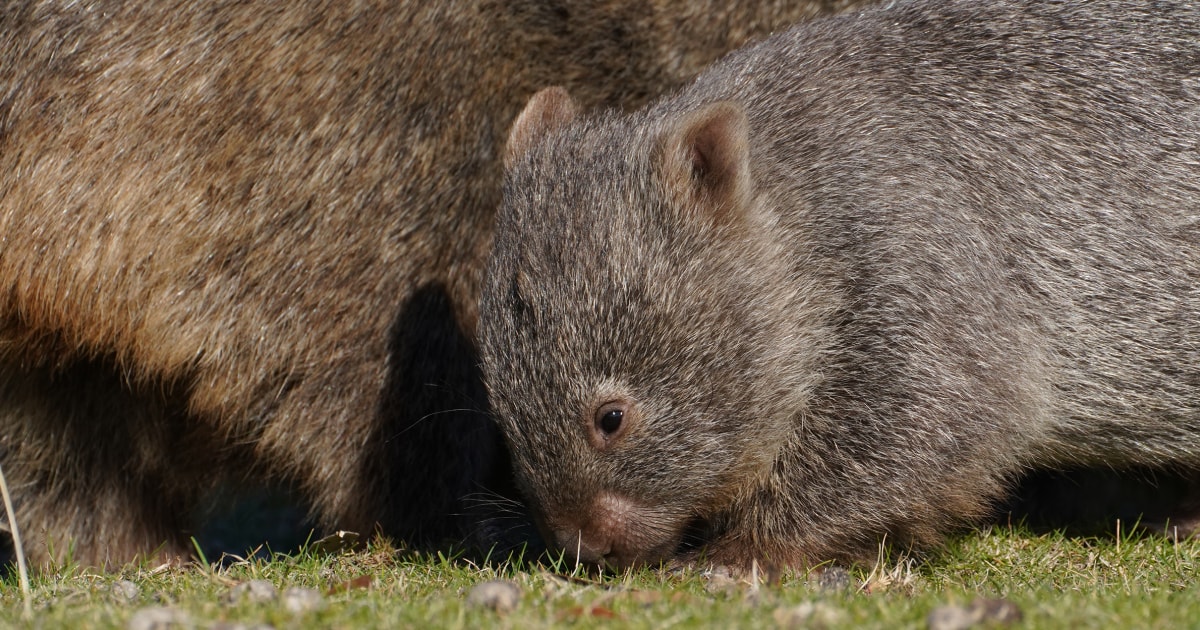Wildlife Rescue: Influencer's Wombat Apology Sparks Online Debate
A recent incident involving popular influencer, @NatureGirl88, and a rescued wombat has ignited a fierce debate on social media regarding responsible wildlife interaction and the ethics of using animals for online content. The controversy began when a video surfaced showing NatureGirl88 handling a seemingly distressed wombat, prompting widespread criticism and accusations of animal endangerment. Subsequently, the influencer issued a public apology, sparking further discussion about the impact of social media on wildlife conservation.
The Incident: A Wombat's Unwanted Spotlight
The video, which quickly went viral, depicted NatureGirl88 attempting to interact with a wombat apparently rescued from a nearby bushfire zone. While her intentions may have been well-intentioned, critics pointed to several concerning aspects of her handling:
- Lack of professional expertise: NatureGirl88, lacking any apparent wildlife rescue training, appeared to handle the wombat without proper safety precautions or knowledge of its potential stress levels. Wombats, while seemingly docile, can bite and scratch when frightened.
- Unnecessary physical contact: Critics argued that the interaction caused unnecessary stress for the already vulnerable animal. Experts suggest minimizing human contact with rescued wildlife to avoid further trauma.
- Potential for disease transmission: Handling wildlife without proper protective gear can pose health risks to both the animal and the handler. Zoonotic diseases are a real concern in such situations.
The Backlash: A Social Media Storm
The video drew immediate condemnation from wildlife experts and conservation organizations alike. The hashtag #WombatWednesday became a platform for criticism, highlighting the potential harm caused by irresponsible social media content creators. Comments ranged from calls for greater accountability to concerns about the long-term impact of such interactions on rescued animals.
The Apology: A Step Towards Reconciliation?
Following the intense online backlash, NatureGirl88 released a public apology, expressing remorse for her actions and acknowledging the harm caused. She stated her intention was to raise awareness of the bushfire's impact on wildlife, but admitted her methods were misguided. The apology also included a commitment to supporting reputable wildlife rescue organizations and educating her followers on responsible wildlife interaction.
The Ongoing Debate: Lessons Learned?
While the apology has been met with mixed reactions, the incident serves as a crucial reminder of the responsibility social media influencers have regarding wildlife. This case highlights the need for:
- Stricter guidelines for influencers: Platforms need to implement clearer guidelines on responsible animal interactions in online content.
- Increased wildlife education: Educating the public on appropriate behavior around wildlife is crucial to preventing similar incidents.
- Support for ethical wildlife rescue: Promoting and supporting reputable wildlife rescue organizations is vital for ensuring the well-being of rescued animals.
This incident underscores the potential negative consequences of using vulnerable animals for online content. Moving forward, a greater emphasis on ethical considerations and responsible practices is essential to protect both wildlife and the reputation of social media influencers.
Call to action: Learn more about responsible wildlife interaction by visiting the website of your local wildlife rescue organization. Let's work together to ensure the safety and well-being of our native animals. #WildlifeConservation #ResponsibleSocialMedia #WombatRescue
